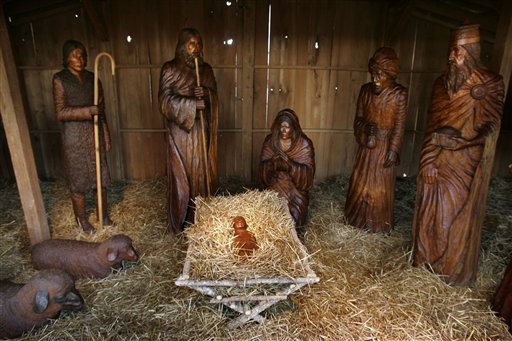A Christmas display on public property and the establishment clause of the First Amendment were the issues before the Supreme Court in Board of Trustees of Scarsdale v. McCreary, 471 U.S. 83 (1985). The Court affirmed a decision by the 2nd U.S. Circuit Court of Appeals holding that the display did not violate the establishment clause. The lower court’s decision was affirmed because the Supreme Court was equally divided.
City refused to give permission for Nativity display
Community members petitioned the city of Scarsdale, New York, to permit them to display a creche — more commonly known as a manger scene — in a public park during the Christmas holiday season. The city, concerned about violating the establishment clause of the First Amendment, refused to give permission.
Circuit court said city’s prohibition was a content-based restriction
The circuit court noted first that the park was a traditional public forum, because the city had never sought to legally establish the park as anything other than “a park of the kind that is traditionally dedicated to First Amendment activities” and the city had permitted other religious and nonreligious groups to erect displays in the park. Because the community members were refused access to the park owing to the religious content of their proposed speech, the city’s act was a content-based restriction on speech.
Supreme Court said the display would not violate the First Amendment
The issue thus before the Supreme Court was whether the city’s content-based restrictions were necessary to serve the compelling state interest of avoiding a violation of the establishment clause. Applying the Lemon test, the Court held that allowing the creche display had the secular purpose of providing equal access for both religious and nonreligious speech, that allowing access to the park would not foster excessive entanglement between members of the religious community and the city, and that any effect of advancing religion was indirect or incidental.
Thus the creche display would not violate the establishment clause. And because the creche display did not violate the establishment clause, the city had no compelling state interest in placing the content-based restriction on use of the public park.
This article was originally published in 2009. Winston Calvert is a public relations professional at Calvert Strategies.

